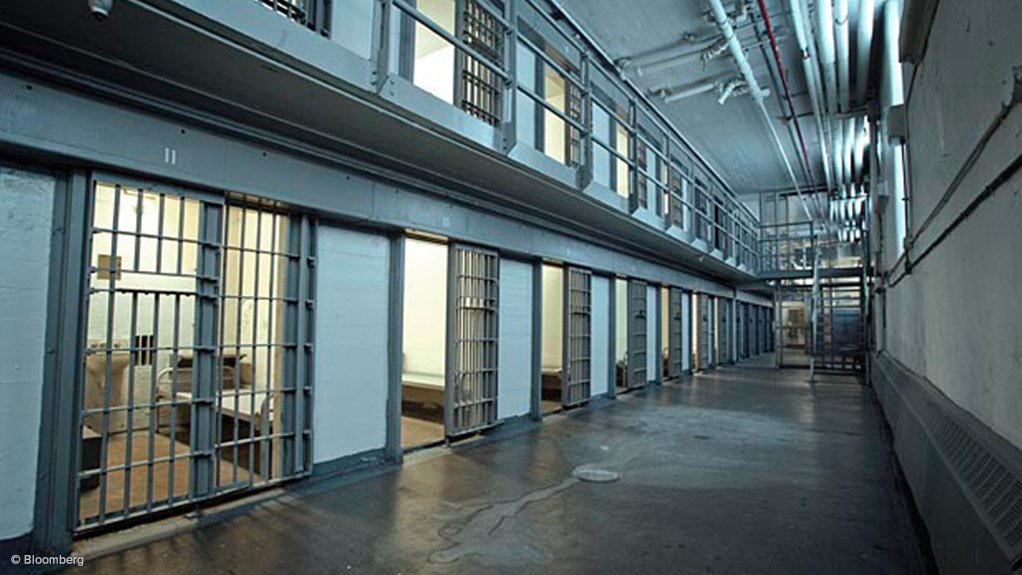/ MEDIA STATEMENT / The content on this page is not written by Polity.org.za, but is supplied by third parties. This content does not constitute news reporting by Polity.org.za.
The Department of Correctional Services (DCS) is commemorating Corrections Week from 24 to 30 September 2018. Corrections Week is observed annually to promote awareness, and understanding, of the correctional system in South Africa.
As part of transforming prisons into correctional facilities, last Friday (21 September 2018), at least 127 inmates, from correctional centers across Gauteng, graduated with various higher education qualifications, and received certificates, diplomas, as well as bachelors and honors degrees. One offender also attained his Masters’ Degree in Tax Law. As part of skills development, a school, built by inmates, was also officially opened at the Boksburg Correctional Centre.
Correctional centres of learning contribute to the elimination of illiteracy, and equip, especially young, offenders with the necessary skills to be self-sufficient upon release. In line with rehabilitation, the major tasks undertaken by DCS include literacy, vocational training, basic occupational skills training, entrepreneurial skills training, business studies, engineering studies, basic and tertiary education qualifications.
The Department manages fourteen (14) formal education full-time correctional centre schools, for the provision of Adult Education and Training (AET) and Grade 10-12 programmed. Over the last four years, the matric pass rate was 68.9% in 2014, 73% in 2015, 72% in 2016 and 76.7% last year (2017).
We also continue to support inmates to enroll for degrees, and other qualifications, with institutions of higher learning. The Department of Higher Education and Training (DHET) is currently supporting DCS with career development services, and a programme to capture assessment data of learners registered at DCS TVET Colleges. Last year (2017), DCS entered into a Memorandum of Agreement with UNISA to provide academic support to student offenders who are studying higher education through correspondence. UNISA has also assisted the Department in the establishment of computer hubs, as central learning centres, where offenders have direct access to UNISA. To date, 14 UNISA hubs are functional throughout the country.
Offenders’ enrolment, and participation, in DCS skills development programmes increased from 4 872 in 2013/2014 to 23 313 in 2017/2018. This represents an 89% achievement against the target of 80%.
The Department also runs 21 farms and 115 agriculture small sites where an average of 3 000 offenders work every day, 10 steel and 19 textile workshops, one shoe factory, and eight bakeries in which 1 500 offenders work. In order to comply with Quality Council for Trades and Occupations standards for occupational programmes (which stipulates that learners must go through theory, practical and workplace learning before they are declared competent), these workshops are utilized to expose offenders to workplace learning. In addition, the Manufacturing, Engineering and Related Services SETA (merSETA) entered into MoU’s with various TVET Colleges at operational level. This includes training of 44 offenders in hairdressing at Johannesburg Management Area, to the value of R792 000-00.
The skills, and training, acquired by inmates behind bars are not only for their personal benefit, but must be utilized in supporting developmental infrastructure projects and general maintenance work in schools and other public facilities.
Our country’s first democratically elected President, Nelson Mandela, called upon us “to create a culture that will motivate offenders to become law-abiding and productive citizens. They need to be re-integrated back into the community because we want them to contribute to the good of all.”
Issued by Government Communication and Information Systems
EMAIL THIS ARTICLE SAVE THIS ARTICLE ARTICLE ENQUIRY
To subscribe email subscriptions@creamermedia.co.za or click here
To advertise email advertising@creamermedia.co.za or click here











